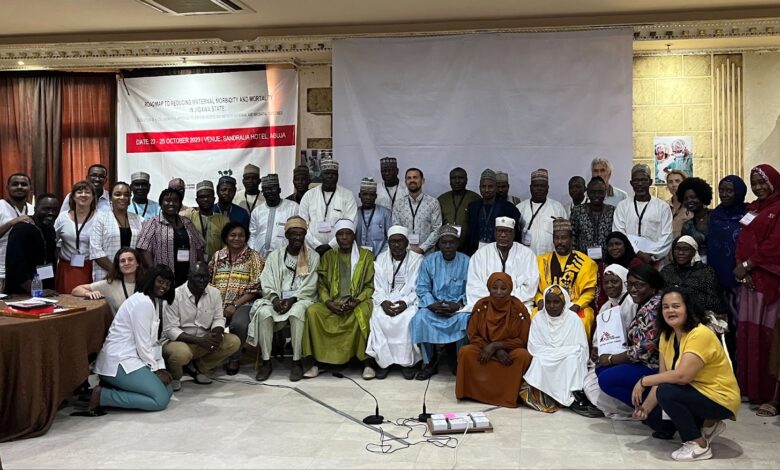MSF, Stakeholders Map Out Next Steps For Jigawa Maternal Health Project
Stakeholders in the room agreed to commit and contribute towards advancing maternal healthcare in Jahun LGA and the entire state of Jigawa, northwestern Nigeria. All the ideas brainstormed towards this goal will be made into a comprehensive roadmap by January 2024.

The three-day roundtable workshop organised by the international medical aid organisation, Medecins Sans Frontières (MSF) in Abuja, Nigeria’s capital, came to an end yesterday, Wednesday, Oct. 25.
The workshop’s purpose was to bring together major stakeholders, partners, and the Jigawa state government to address the issues with maternal morbidity and mortality in the state, particularly MSF’s Jahun project which has been ongoing since 2008.
Stakeholders in the room agreed to commit and contribute towards advancing maternal healthcare in Jahun LGA and the entire state of Jigawa, with all the ideas brainstormed towards this goal to be made into a comprehensive roadmap to be finalised by January 2024. This roadmap will include a budget and action plan for implementation in 2025, according to Mr Tristan Lelonquer, MSF’s Operational Cell Manager for Nigeria, Burkina Faso, Mali and Niger, MSF-France.
He also stated that a working group would be constituted as early as next month, to further iron out the details of the roadmap and incorporate all ideas brainstormed during the programme.
Similarly, the Jigawa state minister of health, Dr Muhammad Abdullahi Kainuwa said a steering committee on maternal health will be set up as early as next week.
During a presentation, Mr Lelonquer mentioned the main takeaways from the workshop, which include tackling the challenges of obstetric complications in local communities, a decentralised approach with ante-natal post visits, home visits, referrals for pregnant women, and prioritising joint efforts to combat sexual violence at the grassroots by collaborating with community leaders and traditional rulers.
“We also recognise the need for availability of trained workers with continuous medical integration, capacity building, and keeping medical workers up to date with modern medical practices, especially in areas of women’s health, and improving safe access to affordable and voluntary contraceptive care to reduce maternal morbidity and mortality, and recognise it as a fundamental human right,” Mr Lelonquer said.
“Access to safe medical abortions will reduce the likelihood of girls and women taking local herbs and medications to terminate unwanted pregnancies, which can be fatal,” he added.
Dr Kainuwa stated the Jigawa state government’s commitment to work with stakeholders and partners to achieve the goals set out to address the gaps in providing maternal healthcare in the state, which included additional supplies such as medical equipment, generators, inverters, and qualified medical personnel and maintenance of these resources to improve the standards of the general hospitals in the state.
“We will also strengthen the capacity of other general hospitals to reduce the burden on Jahun General Hospital, which currently receives more than half of the population of Jigawa,” he added.
Dr Fatima Aliyu, the medical activity officer for MSF’s Jahun project, also emphasised building the financial independence of women with skills, to enable them to attend antenatal appointments and for childbirth without depending on their husbands for money for transportation to the hospital and back.
Partners present in the room, including the World Health Organisation (WHO), Malaria Consortium, Fistula Foundation, the United Nations Population Fund (UNFPA), the United Nations Children’s Fund (UNICEF), Gavi, and Marie Stopes pledged their commitment to provide both technical and financial support for the work MSF is doing in Jahun, and for the Jigawa state government as a whole for intersectional collaboration.
Support Our Journalism
There are millions of ordinary people affected by conflict in Africa whose stories are missing in the mainstream media. HumAngle is determined to tell those challenging and under-reported stories, hoping that the people impacted by these conflicts will find the safety and security they deserve.
To ensure that we continue to provide public service coverage, we have a small favour to ask you. We want you to be part of our journalistic endeavour by contributing a token to us.
Your donation will further promote a robust, free, and independent media.
Donate HereStay Closer To The Stories That Matter




